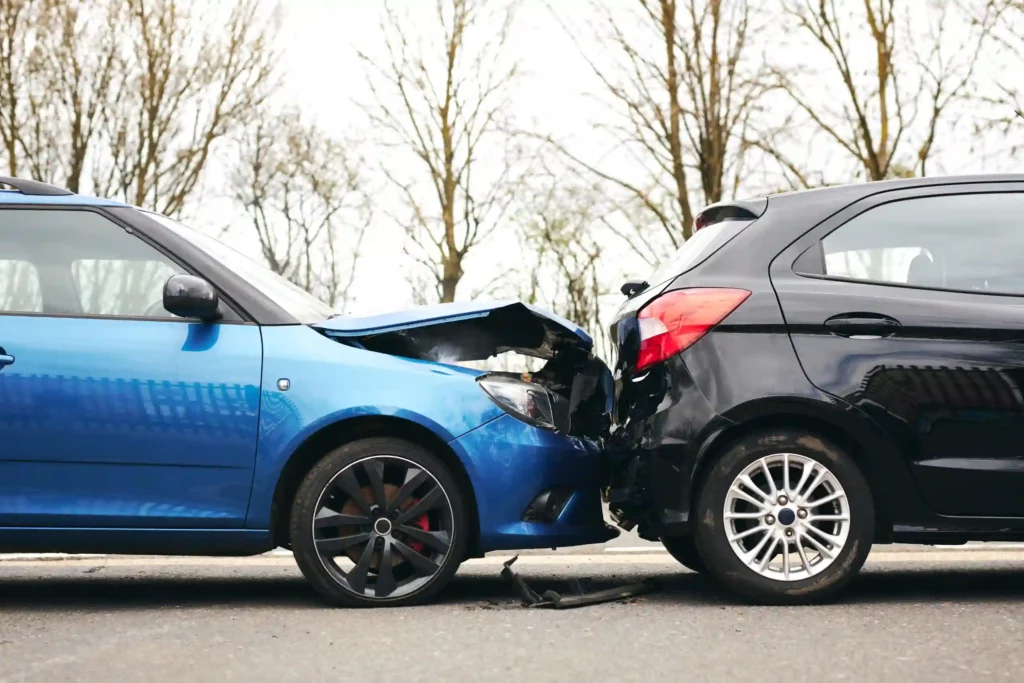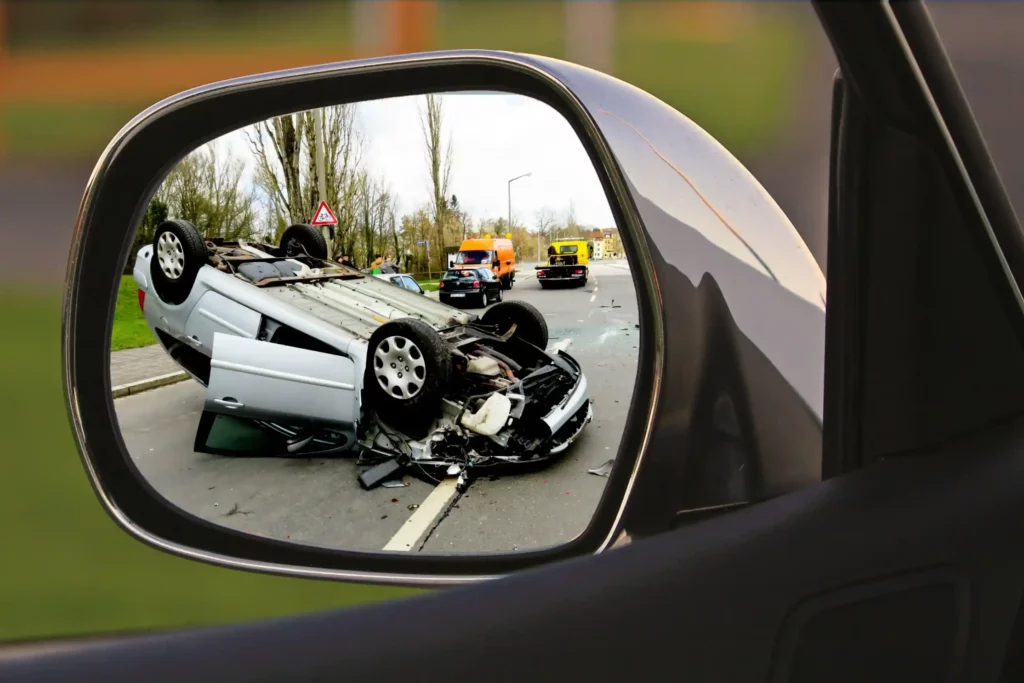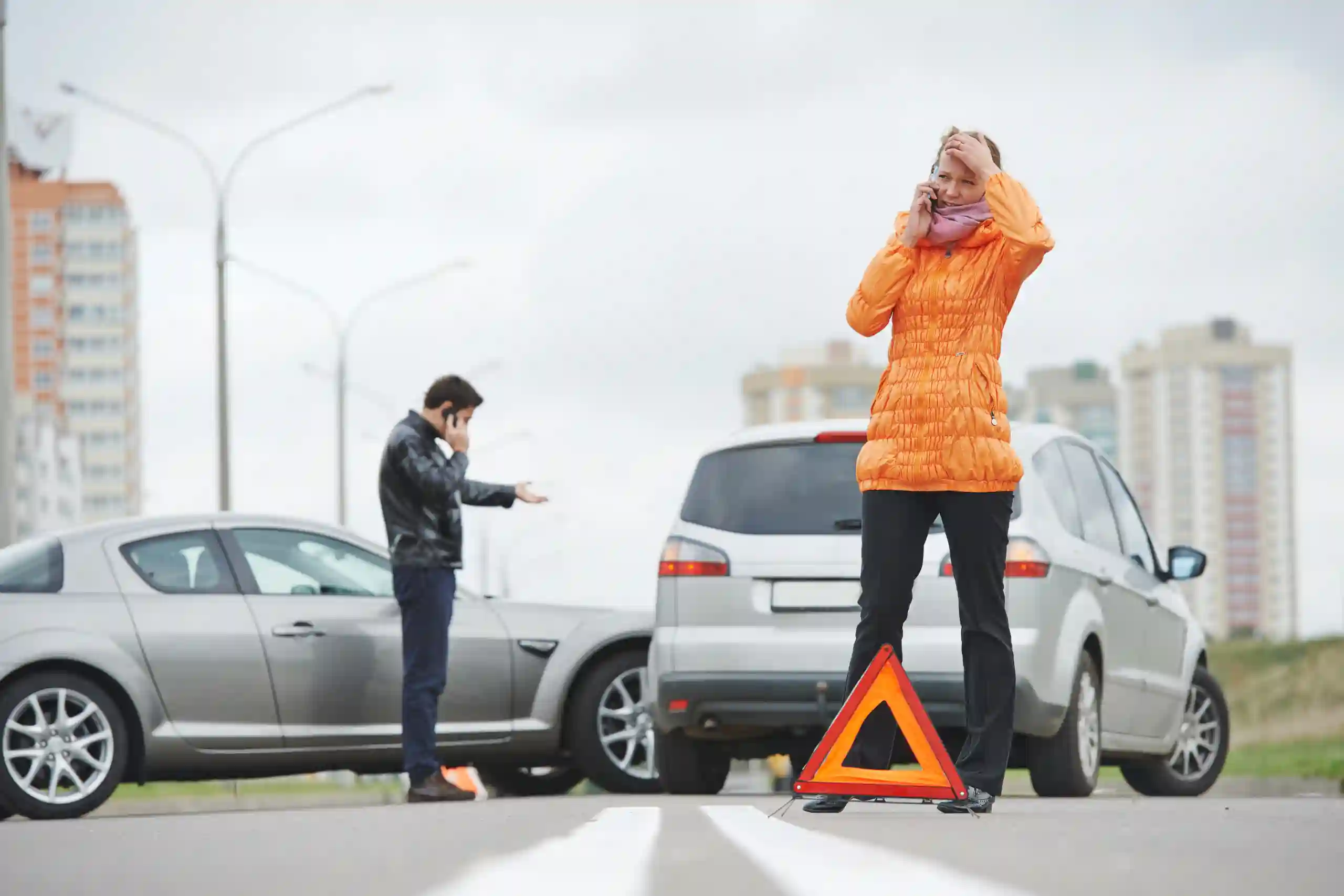Not all injuries suffered in car accidents are physical. Car accident victims can also suffer from psychological injuries, often referred to as emotional distress, brought on by the traumatic experience of the accident. If you suffer from emotional distress following a car accident in Summerville, South Carolina, you may be able to seek compensation for your medical bills, medical expenses, lost wages, and emotional suffering. Hire a Summerville emotional distress lawyer if you experience trauma after a car wreck.
Contact Murphy Crantford Meehan for a free consultation with an experienced Summerville car accident lawyer for emotional distress. We’ll review your case and explain your options for seeking the compensation you need. Our Summerville emotional distress attorneys will also help you determine the best way to prove your emotional distress in court.
Emotional distress is a term covering a broad range of emotional and psychological responses to a traumatic event like a serious car accident. Even if you make a full recovery from your physical injuries, psychological injuries can remain if left untreated. And many car accident victims may not immediately realize that they’re suffering from emotional distress without outside intervention.
Seeking immediate medical treatment is important to identify and address psychological injuries that may not be apparent right away.
For example, you may not realize that your sleepless nights or anxiety while in public are related to a car accident that occurred days or weeks earlier until you seek professional help. But once these psychological injuries are connected to your accident, you can seek the compensation you deserve.

Contact us now
(843) 376-4030
Emotional distress can manifest in many different ways depending on the circumstances of the car accident and the person involved. Emotional distress can also manifest as physical pain, impacting daily life.
Some of the most common symptoms of emotional distress include:
Feeling restless, irritable, and generally anxious after a serious car accident can be a sign of emotional distress. These feelings can prevent you from going about your daily routine, especially if they flare up in specific situations, such as when you’re in public or need to get behind the wheel of your car. Individuals suffering from anxiety due to a car accident should pursue compensation for their emotional distress.
Feeling hopeless and losing interest in activities you once enjoyed are tell-tale signs of depression. Those who suffer from depression after a car accident may also experience changes in appetite or sleep patterns that can disrupt their routine.
In some cases, the brain’s response to a traumatic event is to block out emotions. Often, the best way to overcome emotional numbness after a car accident is to seek therapy.

One of the most disruptive symptoms individuals sometimes acquire after a serious accident is a fear of driving. This fear typically stems from the victim replaying the accident over and over in their head and worrying that they could get injured again.
People experience guilt after a car crash in two main ways. Some individuals feel responsible for injuries caused to another person, such as a passenger in their vehicle. Others may feel “survivor’s guilt” if they came out of the accident relatively unharmed while someone else did not.
PTSD is a specific type of anxiety disorder characterized by intense flashbacks to the accident that caused the condition. Those experiencing PTSD after a car crash may also exhibit other symptoms, such as a fear of driving.

Proving emotional distress after a car accident in Summerville can be challenging, primarily because psychological injuries typically aren’t visible, and filing a personal injury claim for such distress requires substantial evidence. In extreme cases, the symptoms of emotional distress can manifest in physical ways. But for most victims, one of the hardest parts of seeking compensation for emotional injuries is simply proving that the injuries exist.
Some of the evidence that your emotional distress attorney in Summerville will use to prove your emotional distress includes:
However, proving that your emotional distress exists is only the first step. You also have to connect your emotional distress to the car accident. This can be hard because your symptoms may not have appeared immediately after the accident, and the liable party’s attorneys will argue that your emotional distress is caused by something else, such as work stress.
An experienced car wreck lawyer can push back against these claims by showing how your emotional distress only began or worsened after the accident. They can do so by hiring expert witnesses to testify on the impact of car accidents on mental health.
After a South Carolina car accident, victims of emotional distress can largely seek the same types of compensation as those sought for physical injuries:


Understanding South Carolina law is important when handling emotional distress claims to ensure proper compensation and navigate the complexities of personal injury claims.
In South Carolina, if you suffered a physical injury in a car accident, you can also seek compensation for emotional distress, as long as you can prove you suffer from it. However, if you didn’t suffer a physical injury, you can still seek compensation for emotional distress based on the criteria established in Kinard v. Augusta Sash & Door Co.
According to the case law, victims can seek compensation for negligent infliction of emotional distress (NIED) if they can prove that the following criteria apply to their case:
For example, let’s say you got in an accident near I-26 on North Main Street in Summerville. If you didn’t suffer any physical injuries, but a passenger in your vehicle suffered a broken femur, you may still be able to seek compensation for emotional distress as long as you have a formal diagnosis.
If you’re suffering from emotional distress after a car accident in Summerville, SC, don’t go it alone. Call Murphy Crantford Meehan or contact us online today for a free consultation with an experienced Summerville car accident lawyer.
At Murphy Crantford Meehan, we understand how challenging life can be after a construction site injury and believe your focus should be on your health and healing. We’ll handle your claim and take legal action so you can move forward with your life. Injuries on construction sites are often caused by someone else’s negligence. Contact for your free consultation to learn about your legal options.
Our law firm specializes in personal injury cases and is committed to helping Summerville residents secure fair compensation for emotional and psychological injuries. Let our emotional distress lawyers in Summerville guide you through the legal system with our experience and compassion.

Victims can file personal injury claims to seek compensation for emotional distress. Below, you’ll find questions car accident victims who suffer from emotional distress ask about their situation:

Yes, you can file personal injury lawsuits seeking compensation for emotional distress. You can do so even if you weren’t physically injured in a car accident. You will have to prove that you were near someone who suffered a physical injury, that you have a close relationship with that person, that you saw or heard their injury, and that you have a diagnosed emotional distress condition as a result.
To prove your emotional distress, you must have various types of evidence to back up your claim. Some of the most common evidence used in emotional distress cases are:


Emotional distress claims can take anywhere from a few months to years to resolve completely. There are deadlines that both parties in a lawsuit must meet. However, gathering evidence, negotiating settlements, and preparing for trial takes time. Emotional distress lawsuits can also be more complex than physical injury lawsuits. That’s because it’s difficult to prove that the injury exists and that it arose from the car accident.
The testimony of a mental health professional is often vital in lawsuits for emotional distress. Since these injuries aren’t visible, it can be tough to prove that a victim suffers from emotional distress without the testimony of a professional. Mental health professionals can provide oral or written statements about the type of emotional distress you experience, the likely cause of the emotional distress, and the necessary treatments for your emotional distress.

Well-Respected





"*" indicates required fields

Murphy Crantford Meehan – striving to get justice for Our clients. we believe in a good and honest fight, and we will not stop at anything.